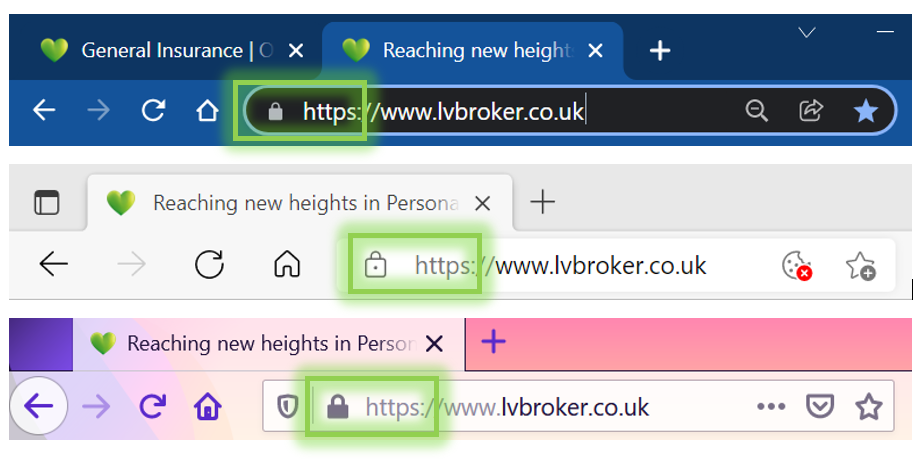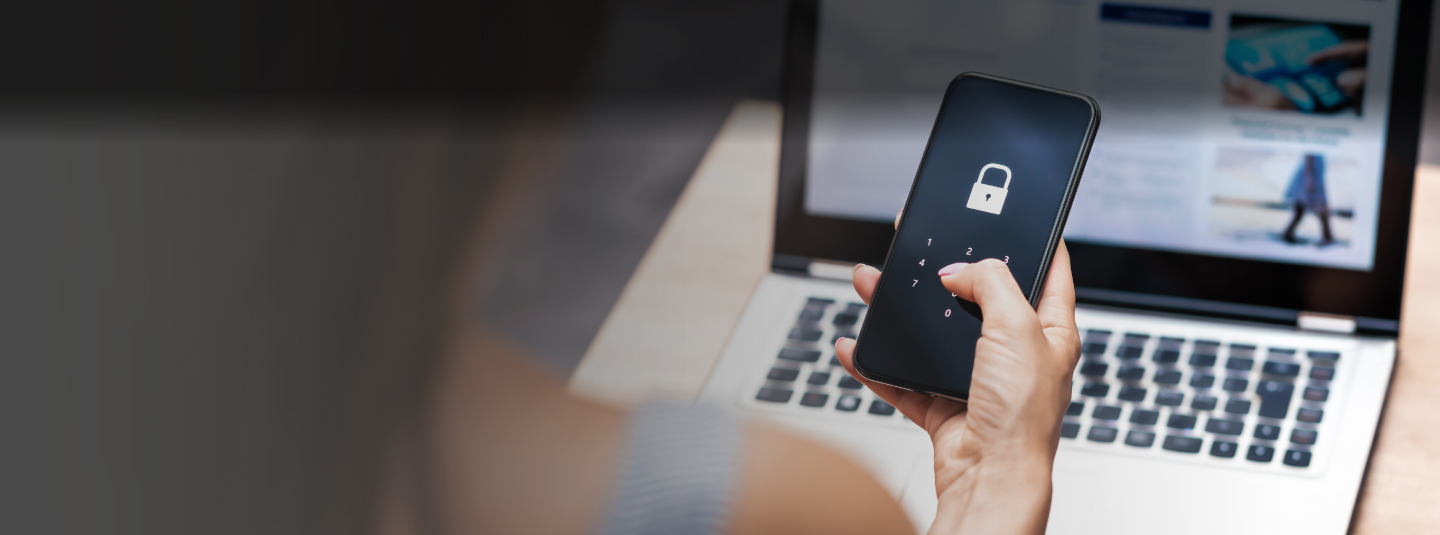We know how important personal and financial details are
So, here's how you can stay safe online:
How can you spot a secure webpage?
You know you're on a secure site when the web address starts with https (the 's' stands for secure).
Some browsers also show a picture of a padlock in the address bar or near the bottom corner of your screen. If you double-click the padlock, you'll see the security certificate for that website.

Top-Bottom: Chrome, Edge, Firefox
What are phishing emails?
- Phishing is the practice of sending fraudulent emails to get customers to reveal personal information, such as passwords and credit card numbers, by pretending to be from a reputable company.
- They’re often created by a third party who have altered the details to make it look like the email is coming from someone within the company. They then try to get you to click on a link or open an attachment that may contain viruses, or even request sensitive information.
What should you do if you receive a phishing email?
- Don't click on any links or visit any websites in the e-mail
- Don't email any personal or sensitive information
- Never share your password and change it regularly
- Contact us if the email is claiming to be from LV=
How to spot a phishing email
- Generic greeting
Phishing emails don’t usually address you personally and instead say "Dear Customer" or something similar. If you don't see your name, be suspicious. - Poor grammar and spelling
If lots of mistakes appear in an email from a supposedly trusted company, that sounds suspicious
- Sense of urgency
Internet criminals want to get their hands on your personal information as soon as they can, so they want you to act fast. For example: if you don't respond in 24 hours your account will be closed. - Plain text/absence of logos
If the email is plain text and looks different from what you would expect it to look like from that sender, it’s best to treat it as suspicious.
- Requests for personal/confidential information
If you receive an email requesting personal information such as usernames, passwords or bank details - treat it as a phishing email! -
Financial requests
Nobody in LV= will ever send you an email asking you to send money directly or pay a bill immediately using bank details or money transfers - we have a set of standard processes for this. -
Forged link
Even if a link includes a name you recognise, it doesn't mean it links to a legitimate site. Roll your mouse over the link to see if it matches what appears in the email and if there’s a discrepancy, don't click on the link. -
High risk attachments file types
including: exe, .scr, .zip, .com, .bat.
Fighting financial crime
We work hard to prevent fraud and other financial crimes to help keep your premiums as low as possible. We employ a special team with many years experience to prevent and investigate financial crime.
What to do if you think you've received a phishing email from us
Email us:
FinancialCrimeIntelligence@lv.co.uk
If you don't have an LV= policy you can report your suspicions to the Insurance Fraud Bureau


